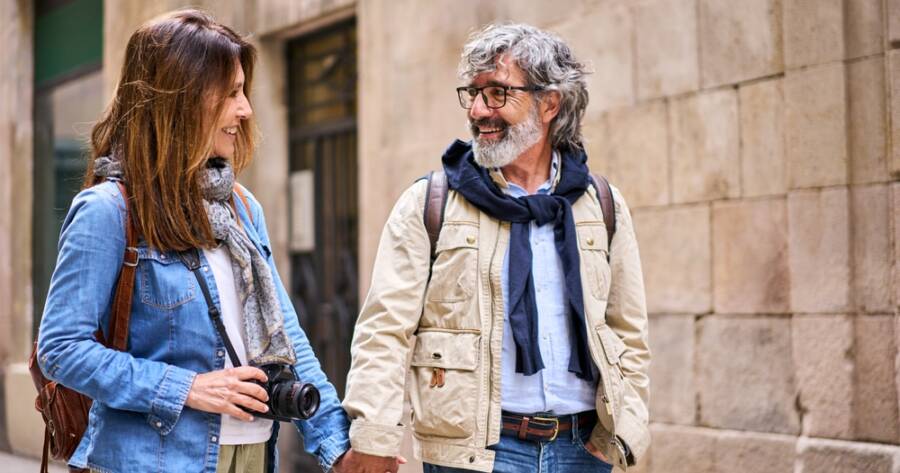Traveling opens up a world of adventure, discovery, and unforgettable experiences, but it also comes with the challenge of keeping your valuables secure along the way. From passports and wallets to electronics and jewelry, the risk of theft, loss, or accidental damage can quickly turn a dream trip into a stressful one. By taking smart precautions and using practical strategies, you can safeguard your belongings, avoid financial setbacks, and enjoy your travels with peace of mind.
1. Use a Money Belt or Hidden Pouch
Keeping cash, credit cards, and important documents secure is crucial when exploring new places. A money belt or hidden pouch worn under your clothes can keep your valuables out of sight and reach. These items are designed to be lightweight and comfortable, allowing you to carry essentials close to your body.
Tips for Use:
- Choose a pouch made of soft material to avoid discomfort.
- Avoid accessing your money belt in public; find a private spot if needed.
- Use separate compartments for cash, credit cards, and passports to stay organized.
2. Keep Valuables in Your Carry-On Bag
When flying, it’s best to keep valuable items like electronics, jewelry, and important documents in your carry-on bag. Checked luggage can be lost, delayed, or even tampered with during transit. Having your valuables with you at all times lowers the risk of them going missing.
Additional Tips:
- Use a bag with multiple compartments to organize your items.
- Opt for a carry-on bag with a secure zipper to prevent theft.
- If you need to check a bag, use a TSA-approved lock to secure it.
3. Use Anti-Theft Bags and Accessories
Investing in anti-theft bags is a smart way to protect your belongings while traveling. These bags are designed with security features like slash-proof materials, locking zippers, and hidden compartments. Some even include RFID-blocking pockets to protect your credit card information from digital theft.
Key Features to Look For:
- Locking zippers: Prevent easy access to your bag by pickpockets.
- Hidden pockets: Store valuable items like money or passports out of sight.
- Slash-proof material: Reinforced fabric prevents thieves from cutting through the bag.
4. Secure Your Accommodation
When you leave your hotel room or rental, ensure that your valuables are secure. Most hotels provide safes in rooms where you can store important items. If a safe is unavailable, consider locking your belongings in your suitcase or using portable locks to secure drawers.
Safety Steps:
- Always lock the door and windows before leaving your accommodation.
- Avoid leaving valuables out in plain sight, even when you’re inside the room.
- Use a portable door lock for added security in hotel rooms or rented apartments.
5. Keep Digital Copies of Important Documents
Losing documents like your passport, travel insurance, or tickets can cause serious problems when abroad. Before you travel, make digital copies of these essential documents. Store them in a secure cloud storage service that you can access from any device. Having backup copies allows you to easily recover crucial information if the originals are lost or stolen.
Steps to Take:
- Scan or photograph your passport, visas, travel insurance, and tickets.
- Save copies to an encrypted USB drive for offline access.
- Use secure cloud services like Google Drive or Dropbox to store these documents.
6. Avoid Flashing Expensive Items
While exploring new places, it’s easy to become relaxed and overlook security. Flashing expensive items like jewelry, cameras, or smartphones can attract unwanted attention. To keep your valuables safe, it’s best to avoid showing them off in public.
How to Stay Low-Key:
- Opt for simple jewelry or leave high-value pieces at home.
- Use a discreet phone case that doesn’t draw attention to your device.
- Be cautious when using electronics in busy public spaces.
7. Blend in With the Locals
Tourists are often easy targets for theft, as they may appear distracted or unfamiliar with the area. Blending in with the local culture and customs can help reduce your chances of standing out as a target. Avoid wearing overly casual tourist attire, such as brightly colored clothes or large backpacks.
Blending In Tips:
- Research the local dress code and pack accordingly.
- Walk confidently and avoid looking lost, even if you need to check a map.
- Learn a few basic phrases in the local language to show respect and awareness.
8. Be Cautious with Public Wi-Fi
No-fee public Wi-Fi networks are convenient but can be a security risk. Hackers can intercept information sent over these networks, potentially gaining access to sensitive data. When using public Wi-Fi, avoid accessing financial accounts or entering passwords.
Safe Internet Use:
- Use a Virtual Private Network (VPN) to encrypt your internet connection.
- Only connect to Wi-Fi networks that require a password.
- Turn off file sharing on your devices when using public networks.
9. Keep a Separate Emergency Stash
In case of loss or theft, having a backup plan can be a lifesaver. Keep a separate emergency stash of cash and a backup credit card in a different location from your main valuables. This extra precaution can provide you with access to funds if your primary wallet goes missing.
Backup Stash Ideas:
- Store extra cash in a hidden pocket in your clothing or a secondary bag.
- Leave a copy of important documents with a trusted friend or family member.
- Consider using a travel belt with a hidden compartment for cash storage.
These Tips Can Keep Your Belongings Safe
Traveling is about exploring and enjoying new experiences, not worrying about lost belongings. Following these tips to keep your valuables safe when traveling can give you peace of mind in a foreign land. By using a mix of security measures, staying alert, and planning ahead, you can reduce the risk of theft and focus on making unforgettable memories. Safe travels!
